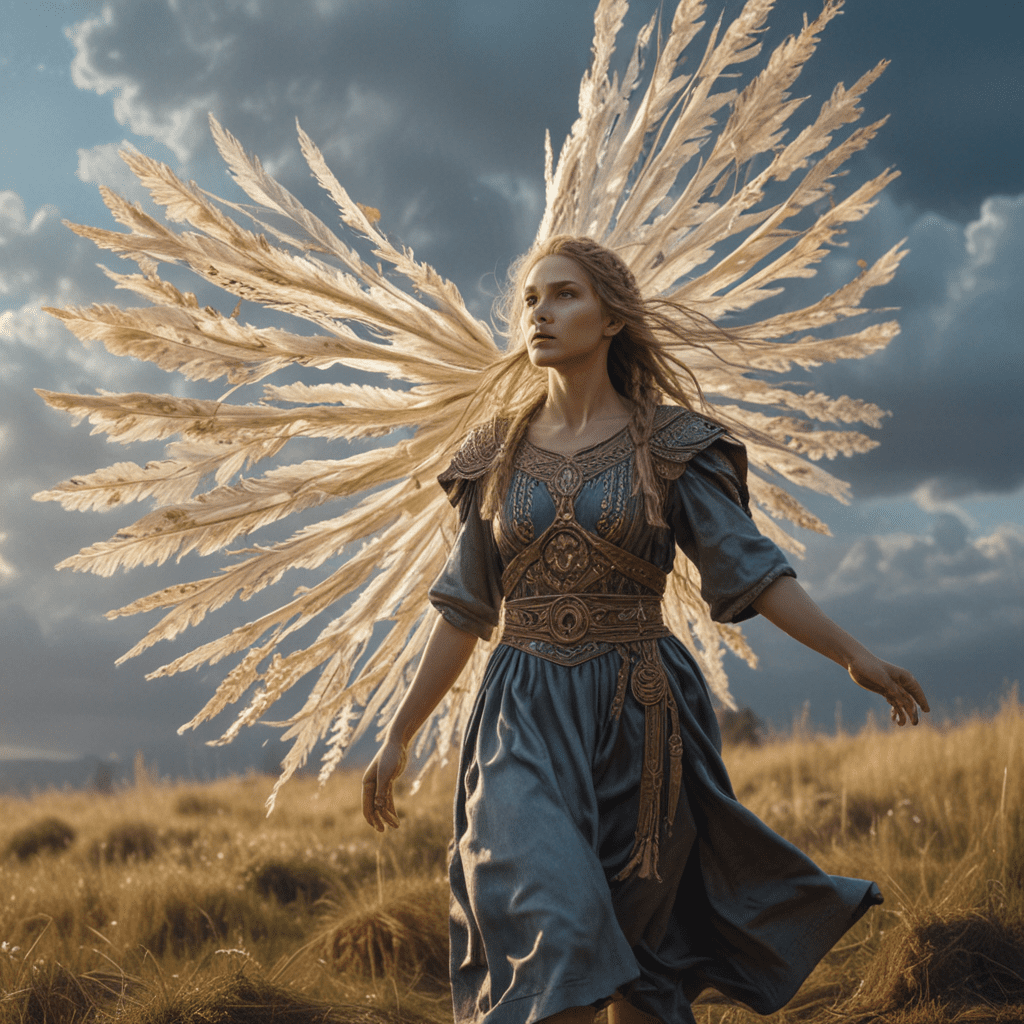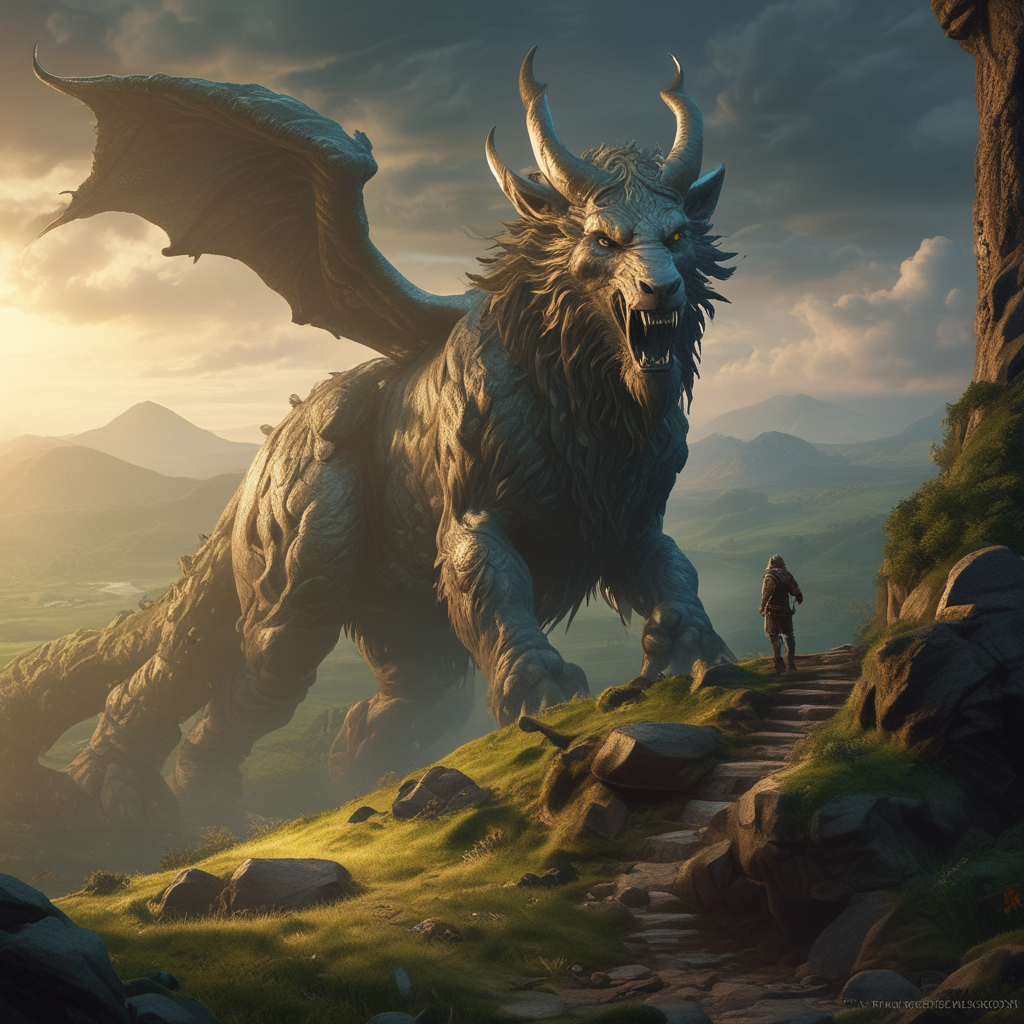Slavic Mythology: Beings of the Wind
Introduction
Slavic mythology is brimming with a vast pantheon of deities, spirits, and mythical creatures. Among these, the beings of the wind hold a significant place, embodying the untamed forces of nature and influencing the destiny of mortals. The Slavic people believed that the wind was not merely an element but a living entity animated by sentient beings – some benevolent, others capricious.
The Role of the Wind in Slavic Mythology
In Slavic folklore, the wind plays a multi-faceted role. It's an indispensable force in shaping the seasons, guiding the fate of sailors, carrying messages and prophecies, and even delivering souls to the afterlife. It's revered as a source of wisdom and inspiration but also feared as a harbinger of change and uncertainty. Thus, understanding the nature of the wind and its enigmatic inhabitants was crucial for Slavic people.
Stribog: The God of the Wind
Atop the hierarchy of wind beings in Slavic mythology sits Stribog, the formidable god commanding all winds and storms. Depicted as a majestic eagle soaring through the heavens, Stribog wields great power over the weather, dispensing both gentle breezes and cataclysmic tempests. He's invoked by sailors and travelers for protection against perilous winds and consulted by wise men seeking insights into nature's patterns.
Pochwist: The Whirlwind Spirit
Lesser in stature but no less potent is Pochwist, the capricious spirit of whirlwinds. Its name translates to "sweeper" or "he who sweeps," reflecting its whirlwind-like form and mischievous nature. Pochwist whirls across the land, often creating chaos and disorder but occasionally aiding mortals by carrying away their troubles. Offerings of food and drink are often left out to appease this enigmatic spirit.
Vetry: The Lesser Wind Spirits
Beneath Pochwist in the hierarchy lie the Vetry, a collective of lesser wind spirits. They're associated with the four cardinal directions, each embodying a distinct character and influence. Vetrnik, the spirit of the north wind, brings cold and snow; Vostochnik, of the east, is associated with new beginnings and warmth; Yuzhnik, of the south, with warmth and abundance; and Zapadnik, of the west, with rain and change.
Vetrnik: The Wind Spirit of the North
Vetrnik, the blustery spirit of the north wind, brings with him icy chills and snow-laden gusts. He's associated with the harshness of winter, the unforgiving cold that tests the resilience of mortals. In Slavic folklore, Vetrnik is often depicted as a frosty giant, his breath a chilling gale capable of freezing rivers and forests. Despite his icy demeanor, Vetrnik is also seen as a protector, guarding against the bitterest cold and ensuring the survival of those who endure the winter's embrace.
Vostochnik: The Wind Spirit of the East
In stark contrast to Vetrnik, Vostochnik, the gentle spirit of the east wind, heralds the arrival of spring. He carries with him the warmth of the rising sun, melting away the remnants of winter and nurturing new life. Vostochnik is associated with new beginnings, growth, and prosperity. In Slavic mythology, he's often depicted as a young man, his breath carrying the scent of blooming flowers and the promise of a fruitful harvest.
Yuzhnik: The Wind Spirit of the South
Yuzhnik, the fiery spirit of the south wind, brings with him the heat of summer and the promise of abundance. He's associated with passion, fertility, and the ripening of crops. In Slavic folklore, Yuzhnik is often portrayed as a beautiful maiden, her breath a warm breeze carrying the fragrance of ripening fruits and the sound of rustling leaves. She's revered as a bringer of love, prosperity, and good fortune.
Zapadnik: The Wind Spirit of the West
Zapadnik, the enigmatic spirit of the west wind, heralds change and uncertainty. He carries with him the fading light of day, the rustling of falling leaves, and the promise of approaching storms. Zapadnik is associated with mystery, the unknown, and the passing of time. In Slavic mythology, he's often depicted as an old man, his breath carrying the scent of damp earth and the sound of whispering trees. He's revered as a guardian of secrets and a bringer of wisdom and insight.
Beliefs and Customs Related to the Wind
The Slavic people held the wind and its enigmatic inhabitants in high regard. They believed that the wind carried messages from the gods and ancestors, and that it could influence their fate and fortune. To honor the wind spirits, they performed rituals and offered sacrifices, seeking their favor and protection. Windmills were seen as sacred structures, and the sound of their turning blades was believed to appease the wind spirits and ensure a favorable harvest.




